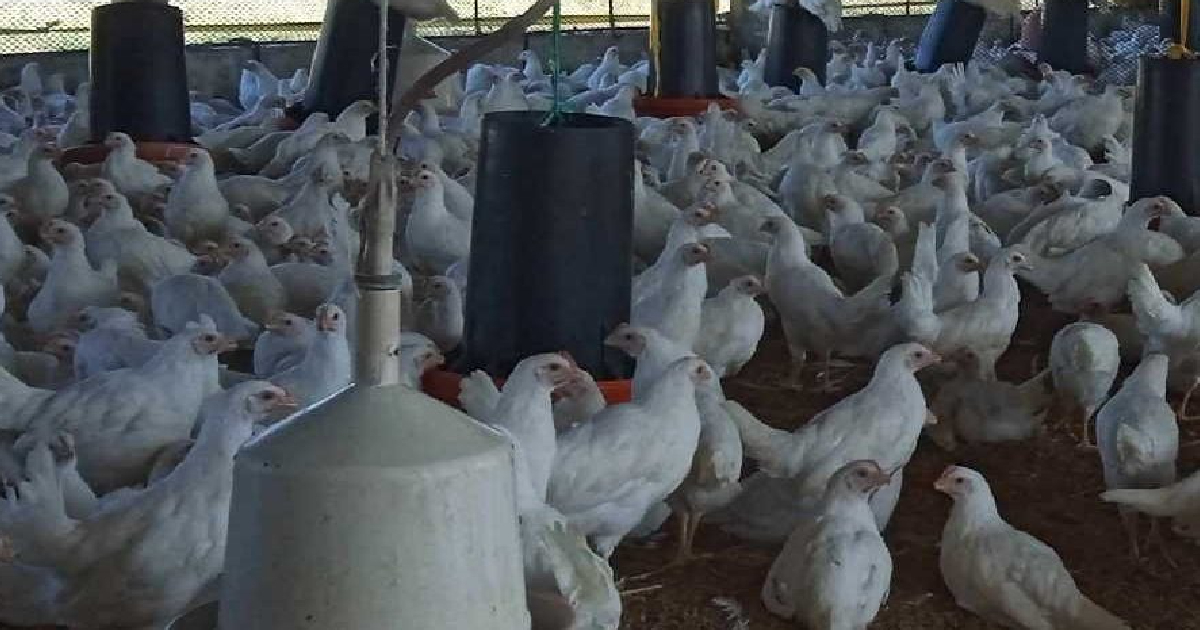
Birds from the replacement units of the Poultry Company Avícola Sancti Spíritus located in Cabaiguán and Jatibonico are undergoing tests for a nationally produced vaccine with the aim of preserving the flock.
"It is an experiment of a Cuban vaccine with which we seek to achieve sovereignty in an area that has always been imported and that, due to the country's limitations for its acquisition, has brought setbacks to move forward with the replacement and has delayed the herd in Cuba," said Alieski Quesada Molina, director of the entity, to the official newspaper Escambray.
The executive stated that currently "the animals are old because they cannot be kept without being vaccinated due to the risk of getting sick."
The test, which is being carried out in the province of Sancti Spiritus, is being monitored by entities such as Labiofam, who are the producers of the vaccine.
He stated that the experiment focuses on measuring adverse reactions since vaccines have different ways of being tested before reaching clinical trials.
The procedure includes vaccinating the animals on the same day they are born at the incubation plant.
"At certain times, tests have been conducted on them, and so far, all have yielded satisfactory results. There is another trial now in the range of 90 and 100 days, which is a critical period for the animal, and also produces the expected results," commented Quesada Molina.
The Cuban authorities seek to patent this product, a move that would benefit the health and productivity of those future laying hens, they assure.
Every year, the effects of avian flu put Cuban poultry producers on alert, left helpless by the scarcity of resources and inputs to prevent the disease and treat the animals, which are so crucial in egg production for human consumption.
Last year, the National Center for Animal Health of the Ministry of Agriculture (MINAG) of Cuba confirmed the presence of avian influenza in wild birds at the Havana Zoo.
Even though they claimed to have that disease under control, all regions of the country were put on alert to prevent being affected.
This danger adds to the lack of adequate food for the animals. Due to this reason, egg production in Cuba has plummeted by more than 50%.
In 2023, the lack of animal feed and financing to acquire the raw materials with which to manufacture them were part of the absence of this product in the diet of Cubans.
What do you think?
COMMENTFiled under: